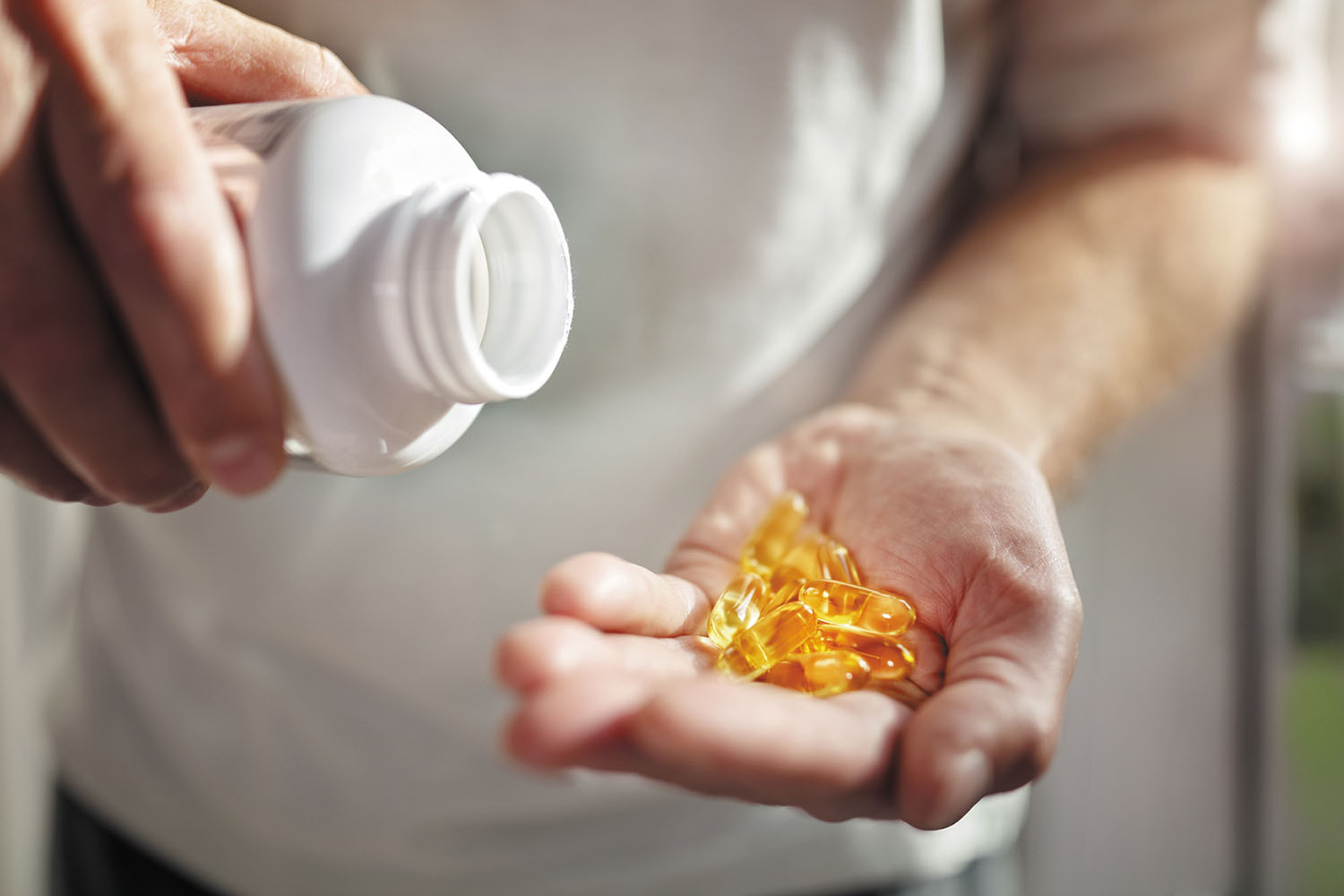
New thinking about plaque in arteries that feed the brain

Want to prevent shifting teeth? Maybe you need retainers

What you need to know about the new dietary guidelines

Food that’s healthier for people and planet can be cheaper, too

New evidence that polyphenol-rich foods help the heart

8 simple ways to reduce ultra-processed foods in your diet

How to curb your stress eating

How to spot Parkinson’s disease symptoms

Heart failure symptoms in women: How they’re different

GERD diet: Foods to avoid to reduce acid reflux
Heart Health Archive
Articles
Does loneliness play a role in cardiovascular problems?
Staying connected to friends, neighbors, and your community may protect your heart.
Image: © StockPlanets/Getty Images
The lonely hearts club may be larger than you realize. About a third of older adults say they frequently feel lonely, according to findings from the National Social Life, Health, and Aging Project. And only about half of Americans have meaningful in-person social interactions on a daily basis, such as having an extended conversation with a friend or spending time with family members, suggests a recent survey by the global health service company Cigna.
People whose main social contacts were at their place of work often feel that loss acutely after they retire. Many older adults are also at risk for isolation and loneliness because they're divorced or have lost a partner. But a lack of caring companionship (including from family, friends, or a romantic partner) may make you more vulnerable to a number of health woes. In fact, several studies suggest that isolated and lonely people face a slightly higher risk of heart attack or stroke than people with stronger social networks.
Vegetable of the month: Tomatoes
Image: © Singkham/Getty Images
Vine-ripened, locally grown tomatoes are abundant in farmers' markets in August. Scientifically speaking, these vivid red (and sometimes yellow, brown, purple, or green) orbs are fruits. But the USDA, which issues the Dietary Guidelines for Americans, includes tomatoes in the red-orange vegetable group. Aim for about five to six cups per week of the foods in this group, which also includes carrots, squash, and sweet potatoes.
When good fresh tomatoes aren't available, canned tomatoes are a good substitute, especially in soups, stews, and pasta sauces. Eating tomatoes and tomato products may help lower cholesterol and improve blood vessel function, according to a 2017 article in Atherosclerosis.
Heart-healthy diet linked to bigger brain volume
Research we're watching
Image: © MachineHeadz/Getty Images
The same diet that doctors recommend for dodging heart disease also may help preserve brain tissue, a new study finds.
Researchers scrutinized diet surveys from more than 4,200 people with an average age of 66 and ranked the quality of their diets on a scale of 0 to 14. A score of 14 was healthiest and included lots of fruits and vegetables, whole grains, nuts, dairy, and fish, but limited sugar. The volunteers provided data on other factors that might affect brain size, such as blood pressure, physical activity, and smoking. They also underwent brain scans to measure their brain size.
Duration of atrial fibrillation and risk of stroke
Research we're watching
Episodes of atrial fibrillation (afib) — a chaotic, irregular heart rhythm — can last for minutes, hours, days, or much longer. The condition encourages blood clots to form in the heart; the clots can then escape and lead to a stroke. New research suggests that even intermittent bouts of afib (which were previously considered to be low risk) may increase a person's risk of stroke.
The study included nearly 2,000 people who wore a small skin patch that continuously monitored their heart rates for 14 days. All of them had paroxysmal (intermittent) afib and were not taking anti-clotting medications. Researchers then tracked the participants' incidence of stroke over the following five years. They found that afib that lasted more than 11% of the total monitoring time was associated with a threefold increase in stroke risk.
Exercise: Better starting later than never
Research we're watching
Image: © adamkaz/Getty Images
Exercising regularly throughout life is the best way to keep your heart healthy. But starting to exercise even in late middle age may lessen the risk of heart failure, according to a report in the May 15 issue of Circulation. Heart failure, a gradual decline in the heart's ability to pump enough blood to meet the body's needs, affects about 6.5 million people in the United States.
The study involved more than 11,000 people who were part of a long-running project begun in the late 1980s, the Atherosclerosis Risk in Communities Study. Every six years, participants got medical testing and filled out questionnaires about their physical activity.
Are there any health benefits to fish oil?
On call
Image: © BrianAJackson/Getty Images
Q. I take fish oil supplements for heart health, but now I hear they aren't helpful. What's the truth?
A. Fish intake remains an important part of a healthy diet, but the enthusiasm for fish oil supplements has been dampened by several recent studies that showed no benefit for a variety of conditions.
Facts about alcohol and heart health
Studies have shown that alcohol can have a good or bad impact depending on how much you drink.
Image: © kali9/Getty Images
Should you enjoy that glass of wine with dinner? Is it okay to relax with a cold beer? When it comes to your heart health, the answer is not clear. The existing research is quite conflicting — some studies say alcohol improves heart health, while others imply the reverse.
So, what's the truth?
"It comes down to moderation," says Dr. J. Michael Gaziano, a preventive cardiologist with Harvard-affiliated Brigham and Women's Hospital's Division of Aging and VA Boston. "A safe amount — about one drink per day — may support a healthy heart and lower your risk of heart disease, while too much can be damaging."
Eggs might help your heart, not harm it
In the journals
Image: © bajinda/Getty Images
Two recent studies have found that eggs do not raise the risk of heart disease, and in fact may even protect against it.
The first study, published online May 7, 2018, by The American Journal of Clinical Nutrition, looked at how egg consumption affected 128 people with prediabetes or type 2 diabetes; both conditions put people at a higher risk of heart disease and stroke. For three months, half of the participants ate 12 eggs a week, while the other half ate two eggs or fewer per week. Everyone also followed the same weight-loss diet that avoided saturated fats like butter and included healthier monounsaturated and polyunsaturated fats like avocado and olive oils.
Eat an egg for breakfast, prevent a stroke?
Research we're watching
Image: © Twomeows_IS/Getty Images
Eating an egg a day may help protect against cardiovascular disease, according to a study published online May 21 by the journal Heart. Researchers found that people who ate an egg every day had an 18% lower risk of dying from cardiovascular disease and a 28% lower risk of experiencing a deadly hemorrhagic stroke, compared with people who didn't eat eggs.
The study included more than 400,000 adults ages 30 to 79. Participants were from 10 survey sites in China. Researchers looked at how often study subjects reported eating eggs and then tracked their health for nearly nine years using registries and other methods.

New thinking about plaque in arteries that feed the brain

Want to prevent shifting teeth? Maybe you need retainers

What you need to know about the new dietary guidelines

Food that’s healthier for people and planet can be cheaper, too

New evidence that polyphenol-rich foods help the heart

8 simple ways to reduce ultra-processed foods in your diet

How to curb your stress eating

How to spot Parkinson’s disease symptoms

Heart failure symptoms in women: How they’re different

GERD diet: Foods to avoid to reduce acid reflux
Free Healthbeat Signup
Get the latest in health news delivered to your inbox!
Sign Up











